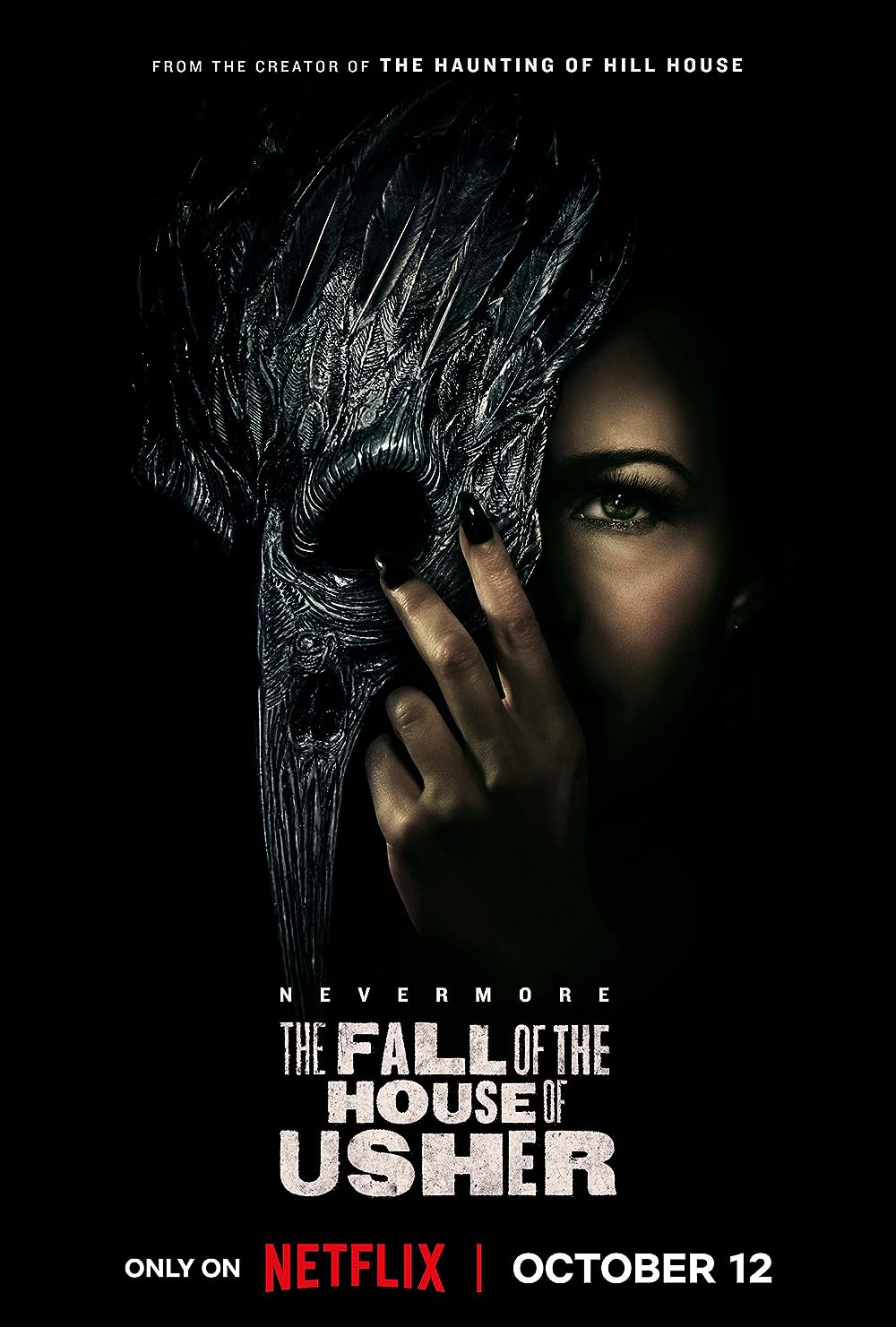Mike Flanagan is a name that deserves attention to any series that lists him as a creator at the top of the About section on Netflix. A writer, director, and editor by trade, he’s beloved for his contributions to the horror genre, such as The Haunting of Hill House (2018).
Flanagan emphasizes themes of addiction, childhood trauma, and guilt which provide a fresh experience in horror entertainment – a genre that had been trending downwards since the 90s because of mockery towards slasher films which were popular a decade prior, and the budgeting of cheap jumpscares into an already low production cost.
So, the 2023 gothic drama miniseries “The Fall of the House of Usher” tags onto Flanagan’s other productions as a troubling, hedonistic, and suspenseful adaptation of the works by Edgar Allan Poe that, albeit cheesily, reconciles the father of American Goths brainchildren to our generation.
The show takes place in the height of 21st century America’s opioid epidemic, during an investigation in which pharmaceutical empire executives Roderick Usher (Bruce Greenwood) and Madeline Usher (Mary McDonnell) fall under heavy scrutiny for the deaths resulting from abuse of their so-called non-addictive drug.
After an inconclusive trial, which quite literally tore the Usher family apart, attorney C. Auguste Dupin (Carl Lumply) accepts the invite to Usher’s confession at his dilapidated childhood home, learning of the causes behind the demise to Fortunato Pharmaceuticals estates heirs.
Throughout the production, Flanagan excels in his use of dramatic irony. He lets the audience know from the opening scene in Episode 1 that all of the Usher descendants are going to die – and said deaths are revealed to us through flashbacks occurring in said dialogue between Greenwood and Lumply.
Surprisingly, this storytelling method didn’t detract from the show’s terror either. While not every scene felt like it was deliberately chosen for the purpose I imagine Flanagan had, the intent is clear throughout the show that Flanagan wants to build the audience’s suspense.
However, where this show’s strength lies in retelling Poe’s macabre, it’s weak in immersing the audience in a realistic “horror drama.” To Flanagan’s credit, the Ushers are isolated from the rest of society through their expensive, sometimes sadistic, hobbies financed by Greenwood and McDonnell.
But the series feels oversexualized at times, shoehorns unnecessarily shallow LGBTQ characters to meet a diversity quota – opposed to fleshing out these characters, and forces cheesy jokes into scenes in order to put the icing on top of the otherwise good cake that Flanagan baked (except the icing is too sweet for the cake, and the show ends up feeling like a bizarre alternate timeline to Breaking Bad; a comparison that could only be sweeter if they had recasted Greenwood as Bryan Cranston).
Overall, if you can turn a blind eye to the issues that are present in The Fall of The House of Usher, you’ll find a series that immerses you in a 21st century world inspired by Poe’s supernatural horrors. 6/10


Be the first to comment on "The Fall of the House of Usher"